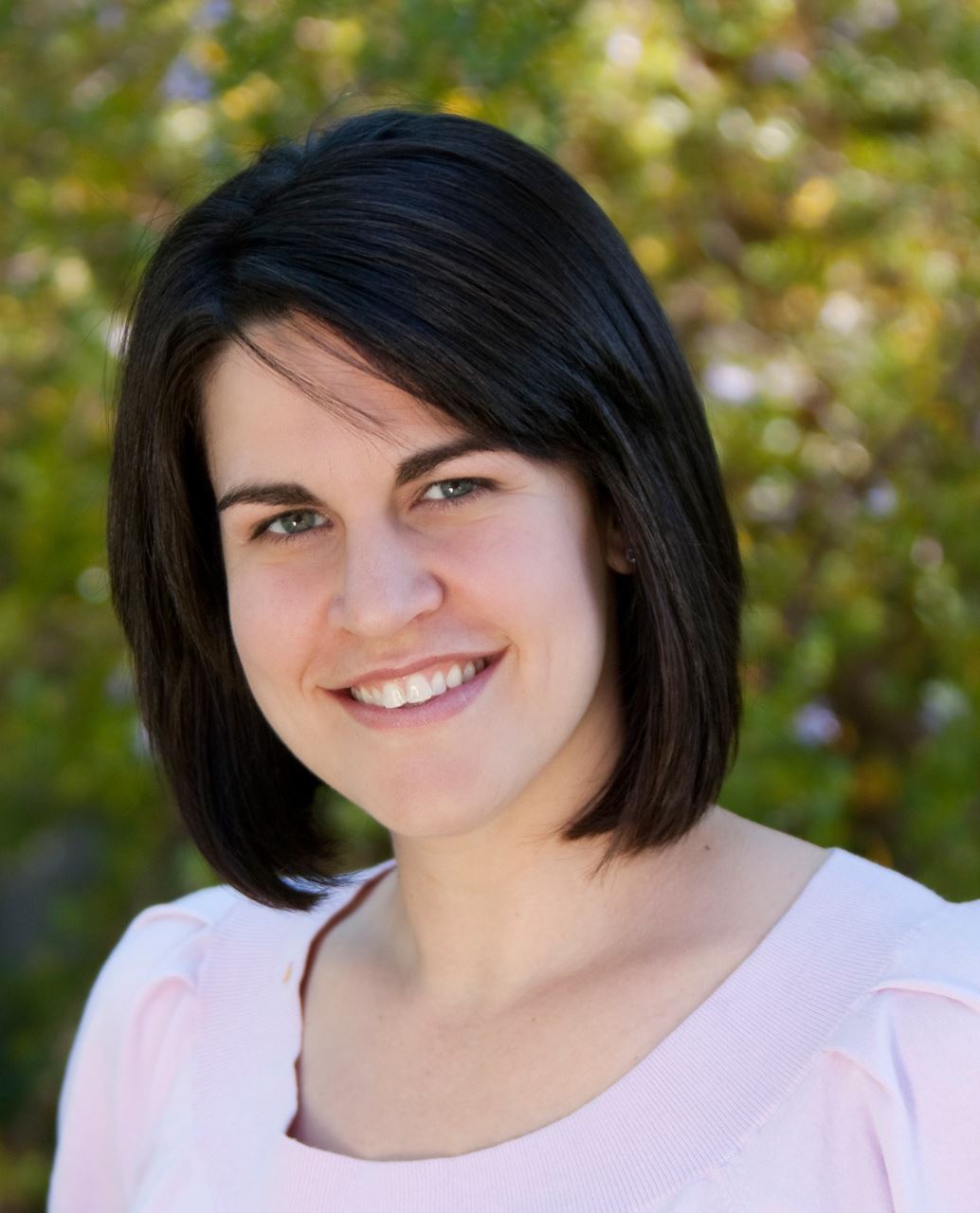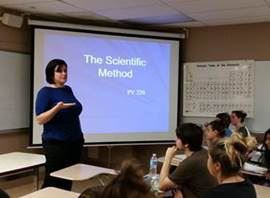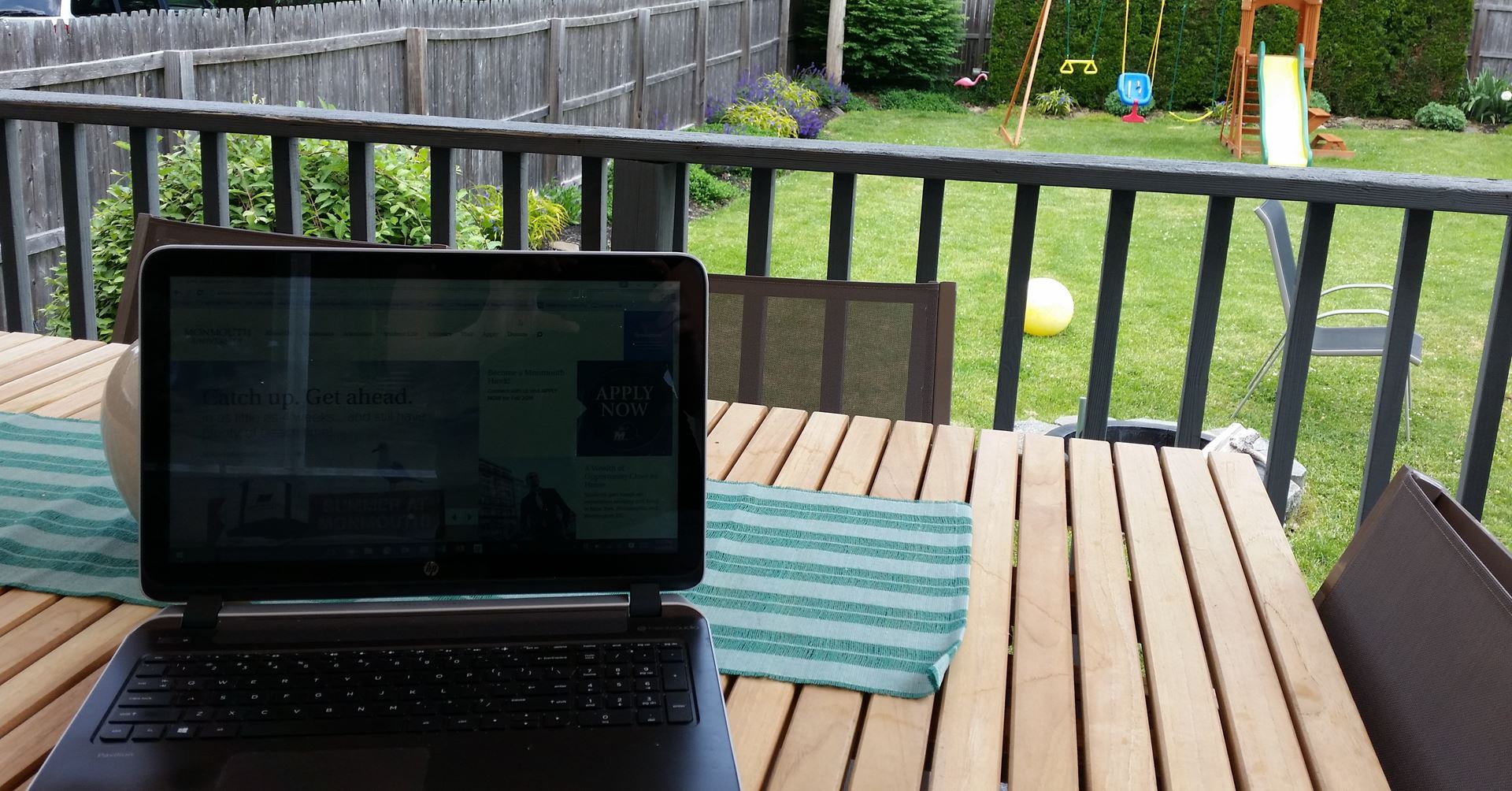 School Name: Monmouth University
School Name: Monmouth University
Type of School: Private Liberal Arts University
School locale: Suburban New Jersey (The Jersey Shore; 1 mile from the Atlantic Ocean and about 1 hour from both NYC and Philadelphia)
Classes you teach: Research I: Research Methods and Lab, Research III: Experimental Methods and Lab, Research IV: Psychology Thesis and Lab, Social Psychology, Social Cognition, Personality Theories
Average class size: My classes range from 12-35 students, but on average my class size is 20 students.
What’s the best advice about teaching you’ve ever received?
Like most graduate students, I received my training at an R01 institution with a heavy research focus. When I discovered that I really enjoyed the classroom, it felt like a dirty little secret I had to keep. I didn’t receive much advice on teaching, so I had to draw from my better experiences as a student to figure out how to best teach in my early days. What I have learned is that just like research endeavors that benefit from collaboration, so does my teaching. Finding others that teach similar classes to yours, both inside and outside your institution, to share ideas, struggles, assignments and activities with will keep you fresh and excited about your teaching. Others can give you new ideas and perspectives. You can build off of what others are doing, and along the way, find that you have good things to share too.
What book or article has shaped your work as a psychology teacher?
Early on I would say McKeachie's Teaching Tips: Strategies, Research, and Theory for College and University Teachers. I think Teaching of Psychology and Scholarship of Teaching and Learning in Psychology are both really great resources as well. For me what book or article is influential depends on my current teaching goals. I go through phases in my teaching and I rely on the scholarship of teaching and learning to help me through that phase. For example, in the past I was very focused on making research methods more relatable and enjoyable for students. Now that I think I do a much better job with that, my mission is to help students recognize and market the skills they receive in my classes.

Briefly tell us about your favorite lecture topic or course to teach.
My favorite course to teach is research methods because the class provides so much opportunity for students to develop marketable skills. I have worked hard to design the class with a learn-by-doing approach and give students ample opportunity to interact with the material in a meaningful way. I see research methods as a tool box for them to use to answer research questions. While you can read and listen to instructions on how to use a hammer, you don’t really understand it until you get to build something with it. It is fun to give students as many opportunities as possible to play around with their tools in their toolbox.
Briefly describe a favorite assignment or in-class activity.
My favorite activity to do with students is the lab I do with my experimental methods class as they are learning about two-group experimental designs early in the semester. Based on a general research topic (e.g., influences on attraction), students develop, conduct, analyze, and report the findings of a research study in small groups. It is a big and daunting assignment. At first it is disorienting to them because they have never been asked to develop and test their own research questions before. They don’t believe they have the knowledge and skills to do so. By the end of the lab, they are able to see that they can use the very same tools that “experts” in the field use to conduct research. It is my favorite because during three hours of class instruction I get to see them become research psychologists. The transformation is rewarding to see. We do similar labs using different experimental designs throughout the semester. By the end of the class, developing, conducting, analyzing, and reporting on a study is a set of skills they have mastered.
What teaching or learning techniques work best for you?
I think what works best for me depends on the goals and content of the course. I generally use a variety of techniques in each of my classes. In the research methods classes that I teach most often, I use a student-centered learning as well as inquiry-based learning frequently.
What’s your workspace like? 
I work like a nomad traveling from place to place. I use my office mostly to meet with students and answer emails. I also meet students in my research lab to work on our research projects. I do most of my writing and class preparation at home and during times of intense grading I head to Panera to keep myself from procrastination and interruption.
Three words that best describe your teaching style.
Stimulating, Challenging, Supportive
What is your teaching philosophy in 8 words or fewer?
building knowledge and skills through inquiry-based learning
Tell us about a teaching disaster (or embarrassment) you’ve had and how you dealt with the situation.
Like everyone, I have had technology problems in class or left a vital activity in the copier and had to improvise my way through it. I am naturally hard to embarrass but for several years I taught a student that was deaf and had an interpreter with her for every class meeting. One of the classes I taught at the time was Evolutionary Psychology, which involved talking about all sorts of potentially embarrassing topics. It is one thing to have to say potentially embarrassing things yourself, but to know that someone else has translate your words adds another level self-consciousness to the situation. When I would get to the more interesting concepts in the lecture, I would see all the students eyes dart over to the interpreter so they could attempt to learn the sign language for the particular term. I tried my best to lecture like I would in any other class and not show any hesitation in talking about the concepts. I also ignored their wandering eyes. I thought if I showed any signs of being embarrassed by the topics, it would trickle down to everyone else involved.
What is something your students would be surprised to learn about you?
That I can do a lot of home repair work. I can tile, drywall, replace electrical outlets and fixtures, and some basic plumbing. I bought an old house that I have been fixing up for the past 8 years.
What are you currently reading for pleasure?
All the Light We Cannot See by Anthony Doerr
What tech tool could you not live without?
I guess it would be Google. Personally and professionally, I often start with a Google search when I am looking for information on a new topic and then sort through the results to find information I need or other resources where I can find it. I recently started sending my research assistants YouTube clips on how to conduct SPSS analyses. Yep, I find them through Google.
What’s your hallway chatter like? What do you talk to colleagues about most (whether or not it is related to teaching/school)?
I am lucky to have great colleagues that are also my close friends. Our faculty offices are all together in one large suite. We talk about the good and bad things that are happening in our classes and with our students. We often share about our personal lives as well. I benefit a great deal from the different stages of life my colleagues are in both personally and professionally. My colleagues promise that one day my toddler will be able to pour a bowl of cereal herself and let me sleep in on a Saturday morning. You might also hear some chatter about what happened on Game of Thrones this week!
